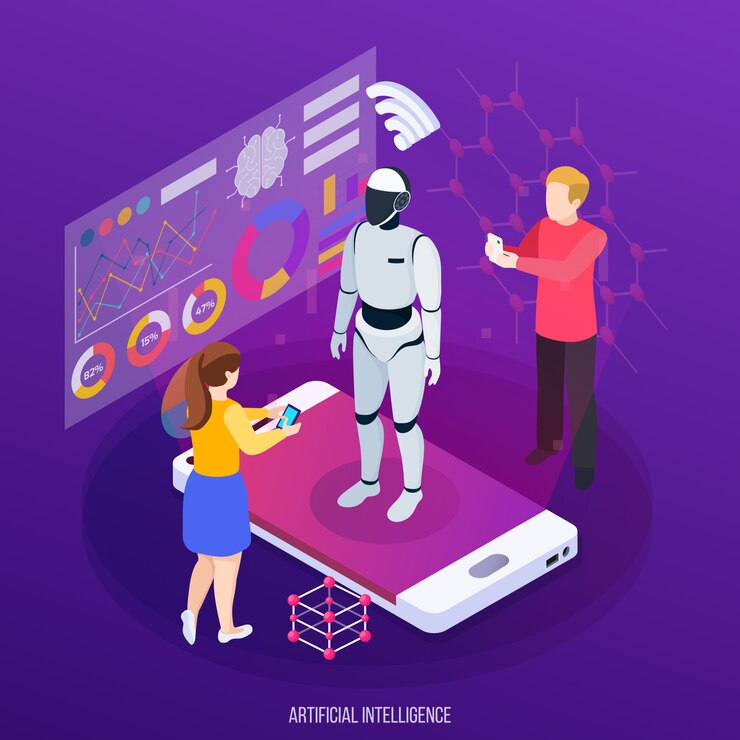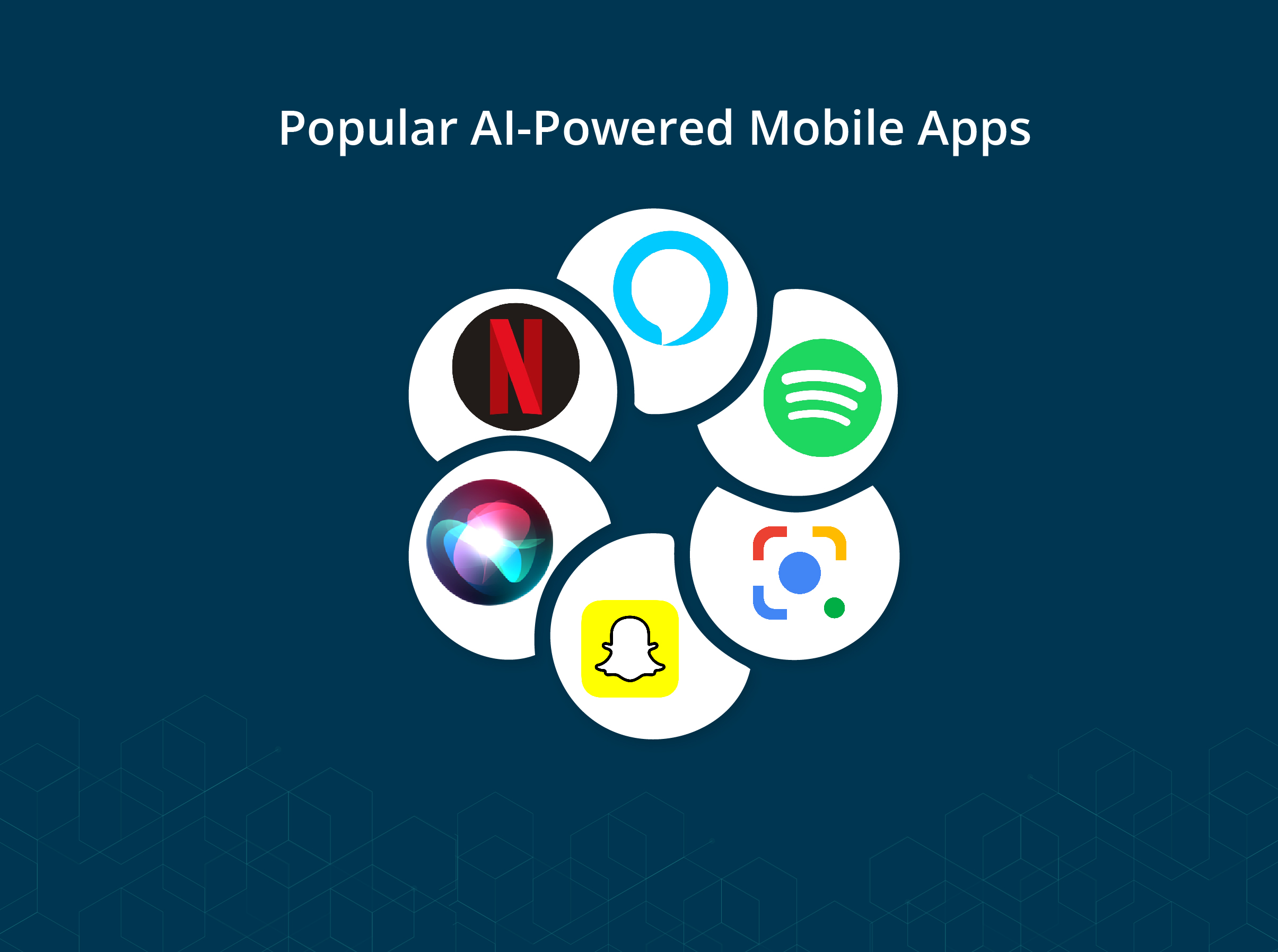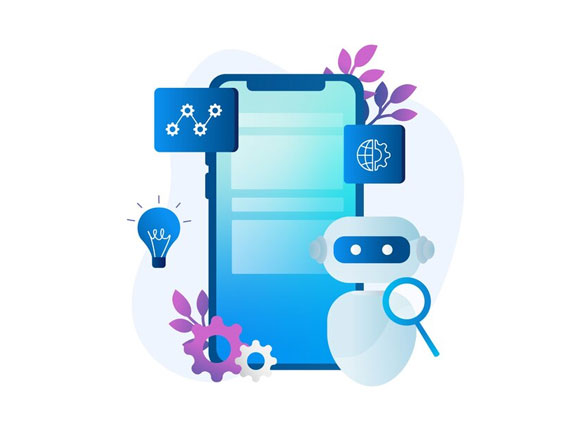extra value
AI-Powered Mobile Apps
Delivering Engaging and User-Friendly Experiences
The Rise of AI in Mobile Apps
Evolution of Mobile App Development
Mobile app development has evolved significantly over the years, with AI playing a crucial role in enhancing app capabilities. From basic utility apps to sophisticated AI-powered applications, the landscape has witnessed a remarkable transformation.
Integration of AI Technologies
AI technologies, such as Machine Learning, Natural Language Processing (NLP), and Computer Vision, have been seamlessly integrated into mobile apps. These technologies enable apps to process vast amounts of data, understand user preferences, and provide personalized experiences.
Popular AI-Powered Mobile Apps
- Virtual Assistants: Virtual assistants have become an integral part of our daily lives, assisting users with tasks, answering questions, and providing personalized recommendations based on user preferences. Siri, developed by Apple, and Alexa, powered by Amazon, are prominent examples.
- Personalized Recommendations: E-commerce and content streaming apps leverage AI algorithms to analyze user behavior, purchase history, and preferences to offer tailored recommendations, enhancing user engagement. Netflix and Spotify are notable examples.
- Speech and Image Recognition: AI-powered apps utilize speech and image recognition technologies to enable voice commands, image search, and augmented reality experiences, providing a seamless and interactive user interface. Google Lens and Snapchat exemplify this.
First notable AI-Powered Mobile App
The interpretation of the first mobile app powered by AI is subjective, given the history of multiple apps incorporating AI or machine learning components. However, one notable early example is the Siri app by Apple, which was launched in 2010 on the iPhone 4S. Siri marked a significant milestone in AI integration, showcasing the potential of voice-based virtual assistants in mobile apps.

Enhancing User Engagement with AI
Understanding User Behavior through Data Analysis
AI-powered mobile apps collect and analyze user data to gain insights into user behavior, preferences, and patterns. This data-driven approach helps in offering personalized experiences and targeted content.
Personalization and Customization
- Tailoring Content and Features: AI algorithms analyze user data to deliver personalized content, product recommendations, and relevant information, increasing user engagement and satisfaction.
- Context-Aware Recommendations: By leveraging location data, user context, and historical preferences, AI-powered apps can provide context-aware recommendations, enhancing user experiences.
Gamification and Interactive Elements
- Incorporating Game Mechanics: AI-powered mobile apps often incorporate gamification elements, such as challenges, rewards, and leaderboards, to boost user engagement and foster a sense of achievement.
- Enhancing User Interaction: Through AI technologies, apps can offer interactive elements like chatbots, voice interactions, and immersive experiences, making the app more engaging and user-friendly.
Optimizing User-Friendliness with AI
Natural Language Processing and Chatbots
- Conversational Interfaces: AI-powered chatbots and conversational interfaces enable users to interact with apps using natural language, simplifying user interactions and enhancing user-friendliness.
- Intelligent Virtual Assistants: Virtual assistants like Google Assistant or Amazon Alexa utilize NLP and AI to understand user queries, provide relevant responses, and perform tasks, making the app more user-friendly.
Simplifying User Interfaces
- Predictive Input and Auto-Fill: AI algorithms analyze user behavior and input patterns to predict user intent, offering predictive input suggestions and auto-fill options, simplifying user interactions.
- Contextual Menus and Gestures: AI-powered apps can leverage contextual menus and intuitive gestures to streamline user interactions, reducing complexity and improving user-friendliness.
Accessibility and Inclusivity
- Voice Commands and Voiceover: AI-powered mobile apps provide voice command capabilities and voiceover features, ensuring accessibility for users with visual impairments or disabilities.
- Visual Enhancements for the Visually Impaired: AI technologies enable apps to provide visual enhancements, such as text-to-speech conversion or object recognition, making the app more inclusive.
Success Stories of AI-Powered Mobile Apps
Fitness Buddy App (2017)
Fitness Buddy is an AI-powered mobile app that provides personalized workout plans, nutrition guidance, and fitness tracking. The app utilizes machine learning algorithms to analyze user goals, preferences, and performance data to generate tailored workout routines and meal recommendations.
FoodiePal App (2022)
FoodiePal is an AI-powered mobile app designed to enhance the dining experience by providing personalized restaurant recommendations, menu suggestions, and food reviews. The app utilizes machine learning algorithms to analyze user preferences, dietary restrictions, and past dining experiences to offer tailored recommendations.

Future Trends and Challenges
Future Trends
- Enhanced Personalization: AI-powered mobile apps will continue to refine their personalization capabilities, offering highly tailored experiences based on user preferences and contextual data.
- Augmented Reality (AR) Integration: AI and AR technologies will be combined to create immersive and interactive experiences, blurring the lines between the physical and digital worlds.
Challenges
- Data Privacy and Security: As AI-powered mobile apps collect and analyze user data, ensuring robust data privacy and security measures will be crucial to maintain user trust.
- Ethical Considerations: AI algorithms should be developed and deployed ethically, addressing biases, ensuring transparency, and avoiding unintended consequences.
Conclusion
Artificial Intelligence (AI) has transformed the mobile app landscape, delivering engaging and user-friendly experiences. By leveraging AI technologies, these apps understand user behavior, personalize content, and optimize user-friendliness. Success stories like the “Fitness Buddy” app and the “FoodiePal” app demonstrate the positive impact of AI on user engagement and satisfaction. However, challenges such as data privacy and ethical considerations need to be addressed. As AI continues to evolve, the future holds exciting possibilities for even more personalized and immersive mobile app experiences.
Collaborate with Codora
At Codora, we are passionate about Mobile App Development, and offer end-to-end services to transform your innovative ideas into fully functional successful mobile applications. Our team has experience with native and cross-platform app development, ensuring easy navigation, scalability, and engaging user experiences.
Contact us today to collaborate and bring your AI-powered mobile app vision to life.


